Teachers and nonfiction writers are sometimes hesitant to tell stories. Just giving the content straight seems so much better. People can get the wrong point from a story, after all. Stories can be subjective, vague, striking different people different ways. We don’t want people confused. And some may like a particular story and others not.
Giving content straight, however, has its disadvantages. Straight content can be limited and give the illusion that we know all we need about a topic in an aphorism or an essay.
If we say God is all-knowing and all-powerful, that is well and good. Maybe we add more. We say God is love, and as a result we also should love. This too is true. We definitely need to know that and believe it. It makes a massive difference in how we understand the Christian life. We have touched the mind in important ways.
And what if we tell a story? What if we tell of a man with two grown sons? The younger son shows immense disrespect for his father, asking for his share of the inheritance. Essentially he is saying he’d rather his father be dead so he can get his hands on the money.
How does the father react? Does he get angry? Does he laugh in his son’s face and mock him? No. He grants the son’s request. Promptly the young man leaves the family and squanders the wealth that he’s been given.
 After some time, and having wasted everything, he is destitute and starving. In desperation he decides to return to his father, thinking to make an abject apology and ask for mercy.
After some time, and having wasted everything, he is destitute and starving. In desperation he decides to return to his father, thinking to make an abject apology and ask for mercy.
All this time the father has been waiting, looking over the horizon, hoping to see his son return. And then, amazingly, he recognizes a disheveled figure, trudging down the road toward the house. The father sets aside his dignity and runs to meet him. Before the son can finish stumbling through his confession, the father calls for the servants to organize a great party for the whole community. Why? To celebrate the return of his beloved son who once seemed dead but is now back, alive.
And we? We have been touched in our hearts. We are moved. We are changed that this is the kind of God we have, a God who loves us even in this way.
—
image credit: wal_172619 Pixabay

 Normally I don’t suggest self-editing before we start drafting. That can often shut down our flow. Unless you usually find yourself writing 3,000 words for every 1,000 assigned, it’s best to cut afterward. But how? A few things come to mind.
Normally I don’t suggest self-editing before we start drafting. That can often shut down our flow. Unless you usually find yourself writing 3,000 words for every 1,000 assigned, it’s best to cut afterward. But how? A few things come to mind. Fourth, in nonfiction you will often have main points. Sometimes you’ll have subpoints as well. But if you find you have sub-subpoints, those are likely candidates to ax.
Fourth, in nonfiction you will often have main points. Sometimes you’ll have subpoints as well. But if you find you have sub-subpoints, those are likely candidates to ax.  That might not even solve all your problems. After all, sending a message into the future can be a tricky business. What could make sure that it didn’t degrade as it passed through the space-time continuum? The technology could break down. Human error or human limitations could prevent the message from being transmitted. And because language and culture change significantly over time, our words and syntax could be difficult to understand by those in the future.
That might not even solve all your problems. After all, sending a message into the future can be a tricky business. What could make sure that it didn’t degrade as it passed through the space-time continuum? The technology could break down. Human error or human limitations could prevent the message from being transmitted. And because language and culture change significantly over time, our words and syntax could be difficult to understand by those in the future. Writing and reading are so commonplace we forget how almost magical the whole process is. We can receive and send ordinary and exceptional stories as well as knowledge across thousands of miles and hundreds of years with people we have never met and who may not know our language.
Writing and reading are so commonplace we forget how almost magical the whole process is. We can receive and send ordinary and exceptional stories as well as knowledge across thousands of miles and hundreds of years with people we have never met and who may not know our language. 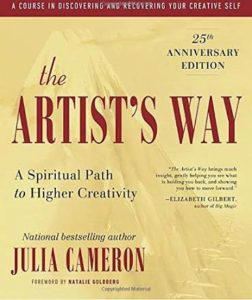 1. Get
1. Get 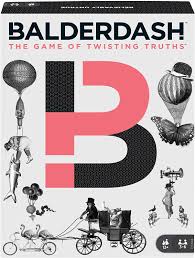 4. Play
4. Play  You can probably rewrite 90% of these sentences in active voice. For example,
You can probably rewrite 90% of these sentences in active voice. For example, Weak: The reason is because Facebook is trying to suck all the DNA out of my body.
Weak: The reason is because Facebook is trying to suck all the DNA out of my body. I am always collecting strings on about seven or eight columns. I’ve got piles of paper for gun control, immigration – whatever the issue of the day is – and then some intellectual things or cultural things. I’m collecting that string and I have a column due every three and a half days. . . . Based on what happens on the day before it’s due or the day it’s due, I’ll decide “Okay, I’m gonna do this one.” I have all this paper, documentation, notes I’ve taken from interviews, and I think geographically.
I am always collecting strings on about seven or eight columns. I’ve got piles of paper for gun control, immigration – whatever the issue of the day is – and then some intellectual things or cultural things. I’m collecting that string and I have a column due every three and a half days. . . . Based on what happens on the day before it’s due or the day it’s due, I’ll decide “Okay, I’m gonna do this one.” I have all this paper, documentation, notes I’ve taken from interviews, and I think geographically. I initially had at thirty or forty groups which I consolidated into about twenty. As I did so, I noticed they fell into four large categories—the craft, the art, and the spirituality of writing plus practical things writers need to know about publishing.
I initially had at thirty or forty groups which I consolidated into about twenty. As I did so, I noticed they fell into four large categories—the craft, the art, and the spirituality of writing plus practical things writers need to know about publishing.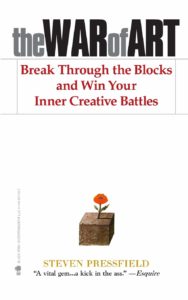
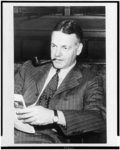 But, Hutchins asks, how can we know these three make a valid foundation? Because, he says, this basis for democracy is moral. “Its end is the good for man. Only democracy has this basis. Only democracy has this end. If we do not believe in this basis or this end, we do not believe in democracy. These are the principles which we must defend if we are to defend democracy.”
But, Hutchins asks, how can we know these three make a valid foundation? Because, he says, this basis for democracy is moral. “Its end is the good for man. Only democracy has this basis. Only democracy has this end. If we do not believe in this basis or this end, we do not believe in democracy. These are the principles which we must defend if we are to defend democracy.” What can we do in the face of all this? This is a huge question which requires a multifaceted response. Allow me, however, to mention just one simple step we can all take.
What can we do in the face of all this? This is a huge question which requires a multifaceted response. Allow me, however, to mention just one simple step we can all take.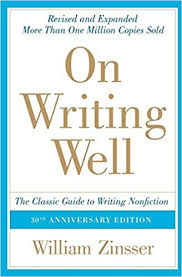
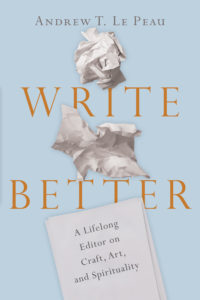
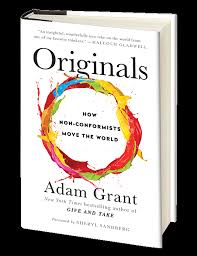
 Grant hooks us by putting two mysteries in front of us which we actively try to solve ourselves before the author reveals the answers. But he doesn’t stop there.
Grant hooks us by putting two mysteries in front of us which we actively try to solve ourselves before the author reveals the answers. But he doesn’t stop there.